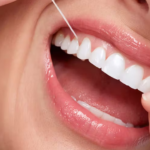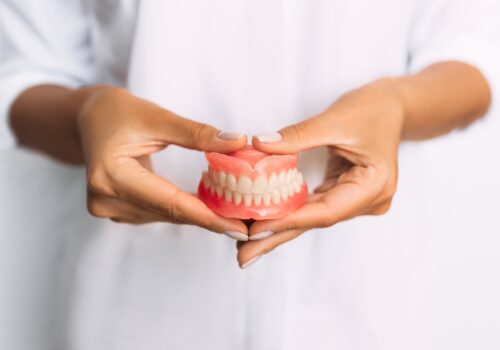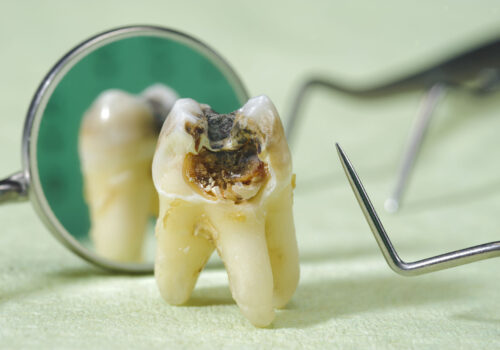
Oral health is a many-sided topic that includes the health of teeth, gums and mucous membranes, as well as the ability to taste food, smell, speak and smile with confidence, without pain or discomfort. No matter how old you are, you should take proper care of your teeth and mouth. It is essential not only for your oral health but also for your overall health.
In this article, you will learn more about oral health, how it impacts the rest of your body, why you must maintain good oral hygiene as well as how to improve your oral health care. Keep reading!
What is good oral health?
In general, good oral health means that you are free from oral health issues and diseases such as chronic pain in the mouth, oral cavity sores, gum disease, periodontal disease, decayed or missing teeth as well as other conditions that affect your mouth and oral cavity.
Adults with good overall health should have 32 permanent teeth and children – 20 primary teeth.
Why it is important to have good oral health
Here are some of the reasons why it is important to keep your oral cavity healthy.
- Your dental health affects the rest of you.
- It protects you against tooth loss.
- It helps detect and treat oral diseases earlier.
- Good oral care is crucial for your healthy smile therefore for your self-esteem.
How oral health affects the rest of you
A healthy mouth and teeth are vital for the general health of the body 3. If you have problems with the oral cavity or gums, solving them can have a positive effect on your overall health.
The oral cavity of healthy people contains hundreds of different bacteria. Although most of them are not dangerous for you 4, they can become pathogenic. It usually happens when you have poor oral hygiene or consume too much sugary food and drinks. Bacteria in the mouth can begin to grow into adjacent areas of the body and form resistant colonies. In addition, it may contribute to many diseases such as heart disease, diabetes, stroke, pneumonia and so on.
Gingivitis and periodontitis are some of the most common gum diseases. Periodontitis or gum infection is a chronic disease that affects the whole body. It is associated with cardiovascular disease, diabetes, osteoporosis, respiratory disease, cancer and other medical conditions. However, the mechanism of how periodontitis affects other organs and systems in the body is not entirely clear.
How food and drinks affect oral health
What you eat and drink can definitely affect your oral health and your overall health both positively or negatively. As we said, bacteria live in all of our mouths. When we eat sugar or cooked starch, that bacteria interact with food particles turning into acid. This acid dissolves the tooth and cause a cavity. Soft drinks and soda have the same impact on the teeth.
On the other hand, eating healthy food can improve your body’s ability to fight bacteria and inflammation which also helps to protect your teeth and gums. Some of the foods that can be beneficial for your teeth are vegetables, fruits, nuts and so on.
How smoking affects oral health?
As you can guess smoking does not affect your oral health in a positive way. It contributes to the formation of plaque and discolouration on the teeth and tongue, which leads to the appearance of bad breath. Moreover, tobacco use make your teeth more susceptible to infections, gum disease, tooth decay and even some more serious diseases 5. This is because the nicotine that cigarettes contain has the ability to lower your immune system and reduce white blood cells count. Your white blood cell is actually what protects your teeth from infection and fights off bacteria and plaque.
The importance of good oral hygiene
Good oral hygiene means caring for your mouth by brushing and flossing your teeth every day as well as having teeth cleanings by a dental professional every six months. Those routine cleanings are extremely important for your dental health. Having good oral hygiene ensures healthy teeth and a healthy smile, while poor oral hygiene can lead to a number of issues and conditions.
Bad oral hygiene usually leads to the accumulation of bacteria, plaque and tartar on teeth. Subsequently, when you are eating and not cleaning your teeth properly, bacteria interact with the remaining food particles and release acids. This acid leads to the wearing of tooth enamel, contributing to the formation of tooth decay, gum disease, periodontal disease and in some severe cases to tooth loss or bone loss.







Leave a Reply